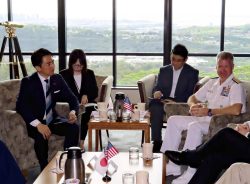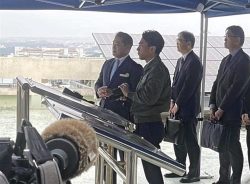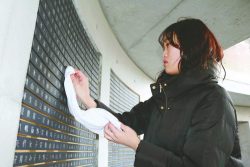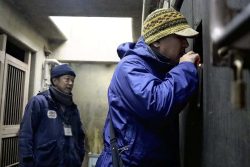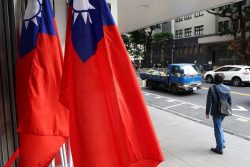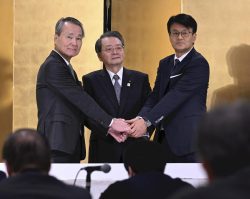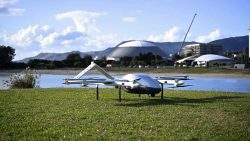Japan, South Korea to Resume Defense Exchanges After Agreeing to Measures to Prevent Repeat of 2018 Radar Incident
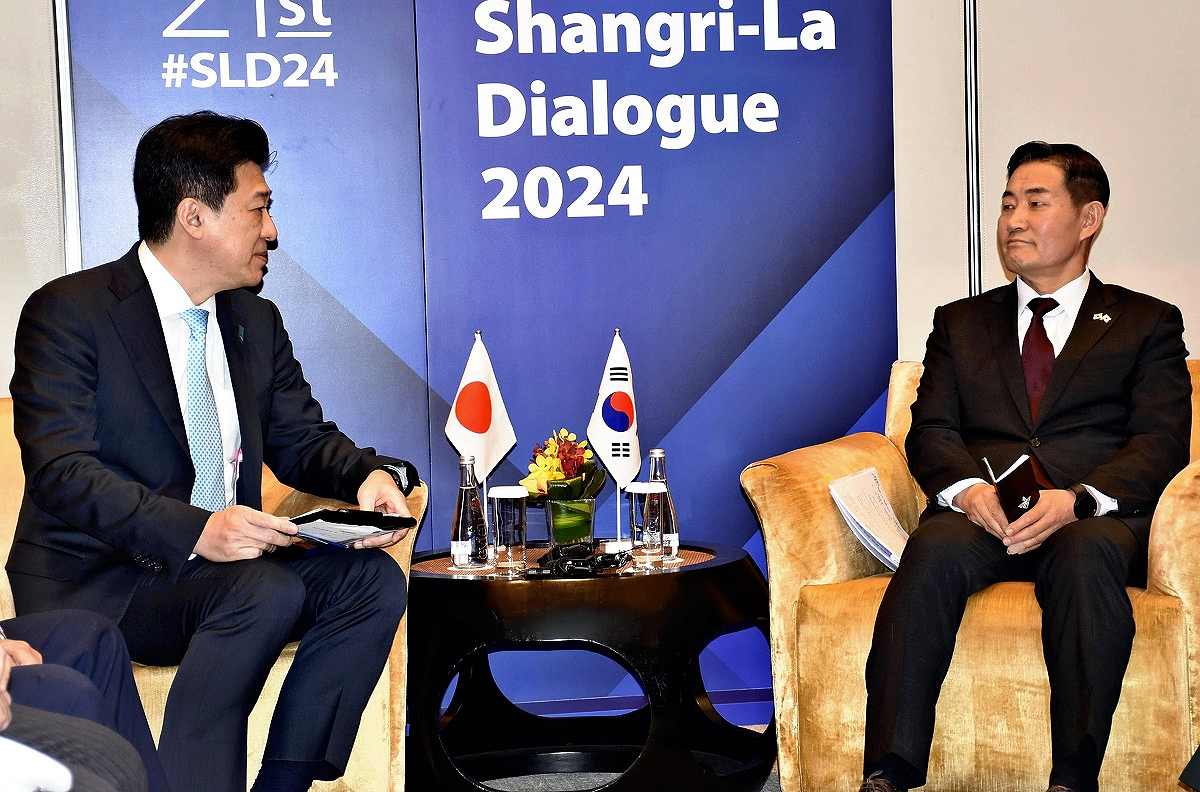
Defense Minister Minoru Kihara, left, and his South Korean counterpart Shin Won-sik hold talks in Singapore on Saturday.
20:00 JST, June 2, 2024
SINGAPORE — Defense Minister Minoru Kihara and his South Korean counterpart Shin Won-sik agreed Saturday to resume bilateral defense exchanges at a meeting in Singapore. They issued a joint press statement and a document of measures to prevent the recurrence of a 2018 radar lock-on incident, the largest issue between the defense authorities of the two countries.
Since South Korean President Yoon Suk Yeol’s government announced a package of measures to resolve lawsuits linked to wartime requisitioned workers from the Korean Peninsula in March 2023, bilateral ties between Japan and South Korea have improved in various fields such as politics and economics. With the latest agreement, the two governments expect bilateral security cooperation to improve as well.
According to the joint press statement, Kihara and Shin agreed that the defense cooperation between Japan and South Korea is essential not only to contain threats from North Korea but also to realize a free and open Indo-Pacific. Additionally, the two ministers reached agreements on holding annual vice defense-ministerial level talks, resuming working-level defense dialogues and resuming high-level exchanges between the Self-Defense Forces and the South Korean military.
In December 2018, a South Korean Navy destroyer locked its fire-control radar on a Maritime Self-Defense Force P-1 patrol aircraft off the coast of the Noto Peninsula. Tokyo lodged a protest with Seoul over the incident. South Korea denies the radar lock-on incident and defense exchanges between the authorities of the two countries have been suspended ever since.
The joint press statement refers to the lock-on incident as an issue that can lead to the prevention of security cooperation between Japan and South Korea, as well as between Japan, South Korea and the United States. The statement did not mention whether the radar had been actually directed at the MSDF aircraft, effectively shelving the matter.
The document of measures states that Japan and South Korea should observe the Code for Unplanned Encounters at Sea (CUES), the international standards adopted in 2014 by major countries including the two nations. It also says that the MSDF and the South Korean Navy will strengthen communications under normal circumstances and build mutual trust. As the CUES does not allow the locking-on of fire-control radar, the Japan believes that this will ensure the prevention of similar incidents.
After the meeting, Kihara said, “The safety of the MSDF will be protected with these measures. Through today’s results, we will revitalize Japan-South Korea defense cooperation and exchanges.”
"Politics" POPULAR ARTICLE
-

Japanese Language Requirement Eyed for Permanent Residency Status; LDP Plans Revisions of Laws on Foreigners
-
-250x167.jpg)
Japan Eyes Plan to Accept Up To 1.23 Mil. Foreign Workers by End of Fiscal 2028
-
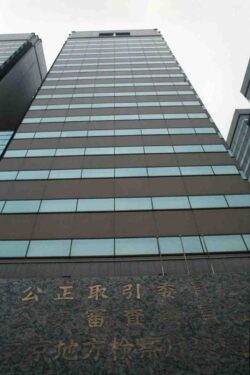
AI-Driven ‘Zero Clicks’ Phenomenon Threatens Democracy; News Outlets Must Be Able to Recover Costs, Stay Independent
-

Japanese Public, Private Sectors to Partner on ¥3 Tril. Project to Develop Domestic AI, SoftBank to Be Key Firm Involved
-

Japan’s Defense Ministry to Extend Reemployment Support for SDF Personnel to Age 65; Move Comes Amid Ongoing Labor Shortage
JN ACCESS RANKING
-

As Chinese Tourists Shun Japan, Hotels and Stores Suffer
-

Core Inflation in Tokyo Slows in December but Stays above BOJ Target
-

BOJ Gov. Ueda: Highly Likely Mechanism for Rising Wages, Prices Will Be Maintained
-

Osaka-Kansai Expo’s Economic Impact Estimated at ¥3.6 Trillion, Takes Actual Visitor Numbers into Account
-

Japan Govt Adopts Measures to Curb Mega Solar Power Plant Projects Amid Environmental Concerns


